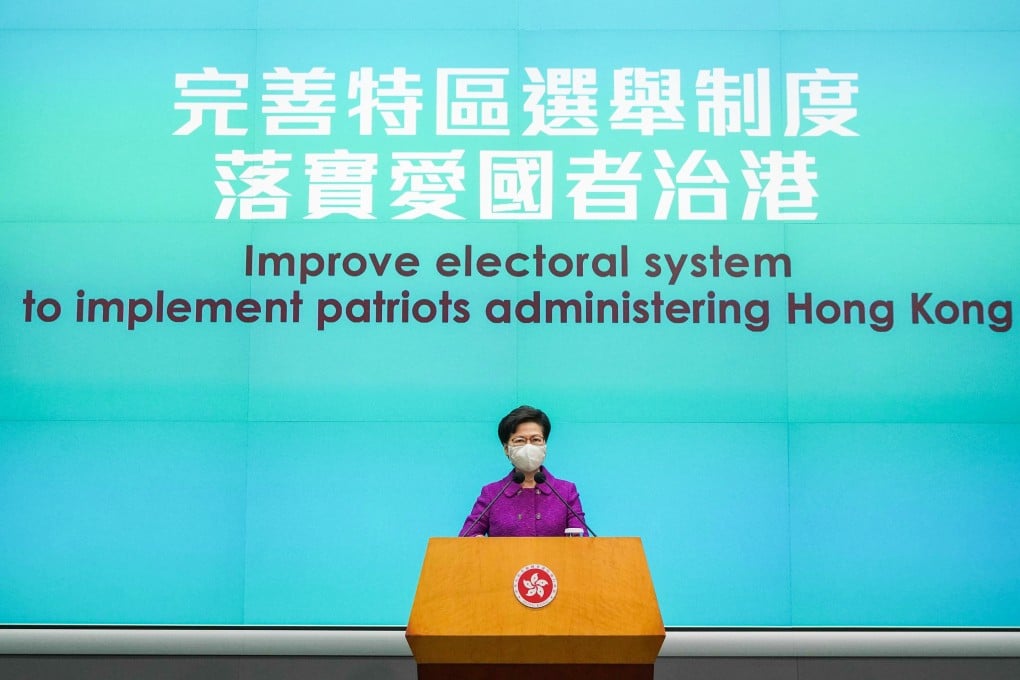Hong Kong can still move towards greater democracy after changes to election system, Carrie Lam says
- City leader also pledges ‘intensive’ drive to explain shake-up to residents but rules out formal public consultation
- Expected changes include new nominating process that will put would-be opposition candidacies at the mercy of establishment-dominated Election Committee

Hong Kong’s leader has given a public assurance the city can still move towards greater democracy after Beijing’s planned changes to the electoral system and denied the overhaul was aimed at eliminating the opposition camp.
Speaking for the first time in public since Beijing laid down the reform plan, Lam expressed her gratitude to the central government for its “timely, lawful and constitutional” move to take the lead in “plugging the loopholes” in the electoral framework, as the city did not have the power to handle the changes on its own.
“I am actually quite gratified that as a chief executive of the Hong Kong Special Administrative Region I am now doing quite a couple of good improvements that will ensure the long-term prosperity and stability of Hong Kong that will safeguard the implementation of ‘one country and two systems,” she said.